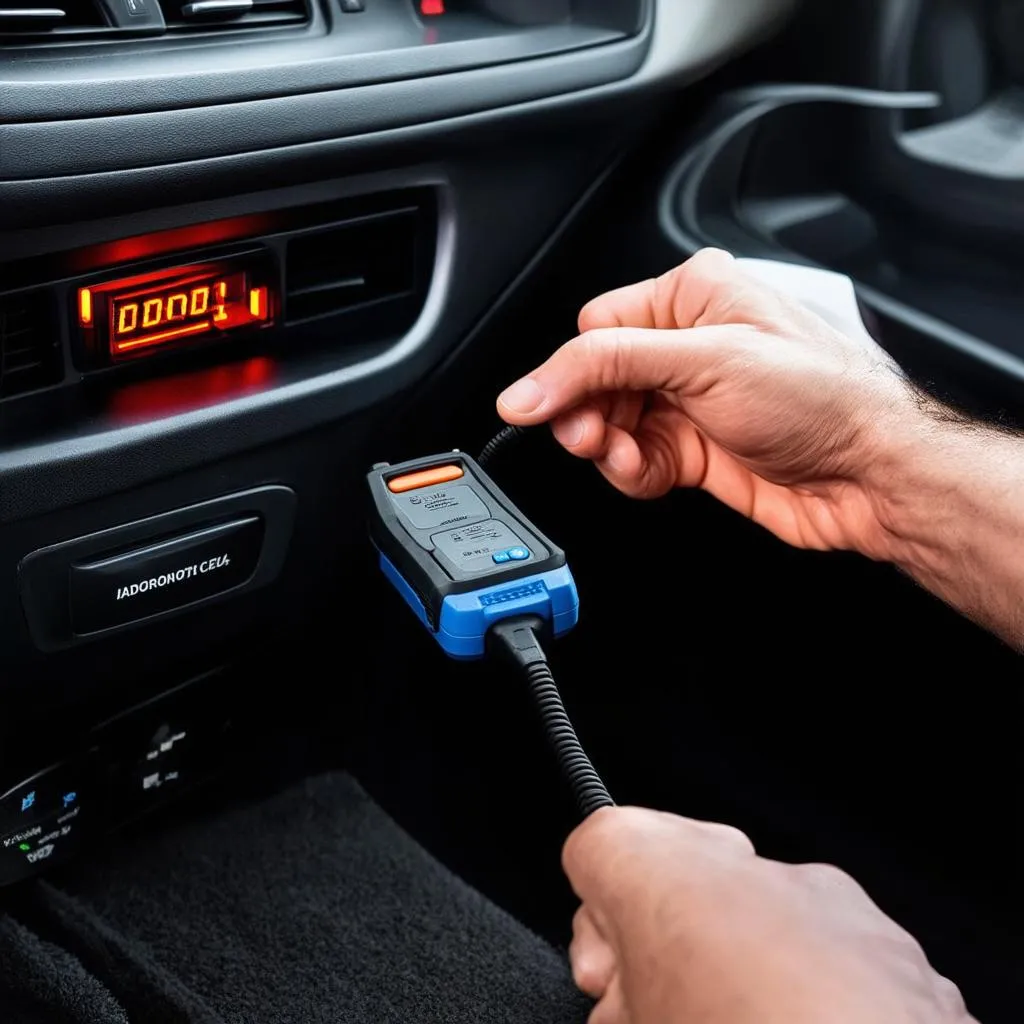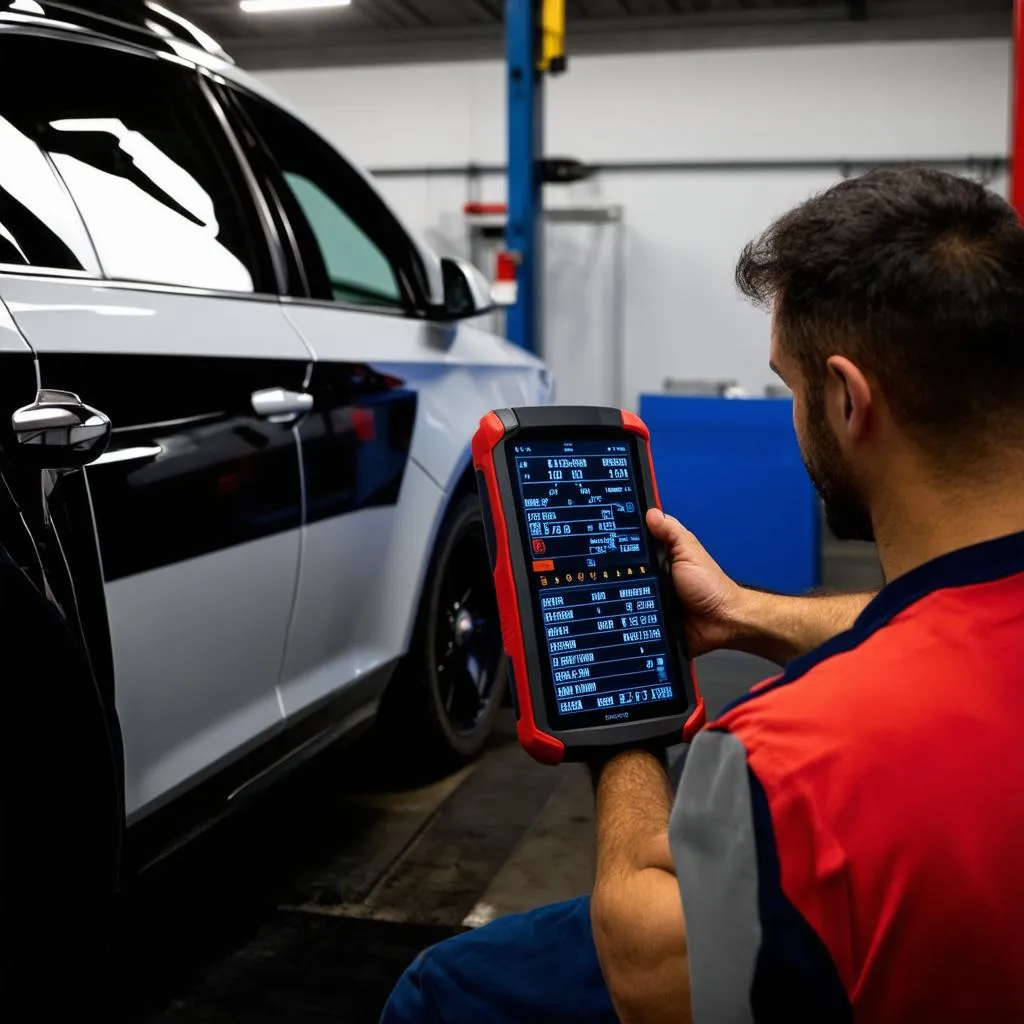Ever gotten behind the wheel on a chilly morning, only to be met with a stubborn engine and a mysterious, blinking light on your dashboard? We’ve all been there! That, my friends, is often your car trying to tell you something through the mystical language of OBD-II car scanner codes.
But what secrets do these codes hold? Are they a cryptic message from the automotive gods, or a practical tool for understanding your vehicle’s health? Let’s dive into the world of OBD-II scanners and decode their mysteries!
Decoding the Enigma: What are OBD-II Car Scanner Codes?
Imagine your car’s computer system as a bustling city, with various components working together. When something goes awry, an “alarm” is triggered, generating a specific code that’s stored in the car’s computer, much like a distress signal. These are your OBD-II codes.
“OBD-II” stands for On-Board Diagnostics, generation two, and it’s been the standard for vehicles in the US since 1996. Think of an OBD-II scanner as your own personal translator, plugging into your car’s system to reveal these hidden messages.
Why Should I Care About OBD-II Codes?
You might be tempted to ignore that pesky check engine light, but understanding these codes can be incredibly beneficial:
- Early Detection: Just like a regular health check-up, OBD-II codes can help identify potential issues before they snowball into major (and expensive!) repairs.
- Empowered Car Owner: Armed with the right information, you can have more informed conversations with your mechanic and potentially avoid unnecessary services.
- DIY Diagnostics: For the mechanically inclined, an OBD-II scanner can be a powerful tool for troubleshooting and even fixing some issues yourself.
 OBD-II Scanner in use
OBD-II Scanner in use
Cracking the Code: Types of OBD-II Codes
OBD-II codes are made up of a letter and four numbers, each with its own meaning:
- The Letter: This indicates the system related to the code. “P” for Powertrain, “B” for Body, “C” for Chassis, and “U” for Network Communication.
- The Numbers: These provide more specific information about the problem area.
For example, a “P0301” code indicates a misfire in cylinder 1, a common engine issue.
Common OBD-II Codes and Their Meanings
Let’s demystify some frequently encountered codes:
- P0420: Catalyst System Efficiency Below Threshold (Bank 1) – This could mean your catalytic converter is failing, often due to a faulty oxygen sensor or a rich fuel mixture.
- P0171: System Too Lean (Bank 1) – This suggests your engine isn’t getting enough fuel, potentially caused by a vacuum leak, a faulty fuel injector, or a dirty mass airflow sensor.
- P0300: Random/Multiple Cylinder Misfire Detected – This indicates a general misfire issue that could be caused by spark plugs, ignition coils, fuel injectors, or a vacuum leak.
OBD-II Scanners: Your Window into Your Car’s Soul
Choosing the right OBD-II scanner can feel overwhelming, but remember:
- Basic Scanners: Affordable and perfect for reading and clearing basic codes.
- Advanced Scanners: Offer more features like live data streaming, manufacturer-specific codes, and even the ability to program keys.
 Mechanic using a tablet OBD-II scanner
Mechanic using a tablet OBD-II scanner
A Word of Caution: OBD-II and Feng Shui?
While the internet is rife with claims about using OBD-II scanners to improve your car’s “energy” or align it with Feng Shui principles, it’s essential to approach such notions with a healthy dose of skepticism. OBD-II scanners operate within the realm of automotive technology, not metaphysics.
Get a Grip on Your Car’s Health
OBD-II car scanner codes might seem like a foreign language at first, but understanding them empowers you to be a more informed and proactive car owner. Whether you’re a seasoned DIY mechanic or prefer leaving repairs to the pros, these codes offer invaluable insights into your vehicle’s well-being.
Have more questions about OBD-II codes or need help diagnosing a pesky car problem? Don’t hesitate to reach out to our team of automotive experts via WhatsApp at +84767531508. We’re here to help you navigate the world of car care with confidence!
Want to learn more about specific car models and their OBD-II codes? Check out these helpful resources:
We encourage you to share your own OBD-II experiences and questions in the comments below! Let’s build a community of empowered car owners!